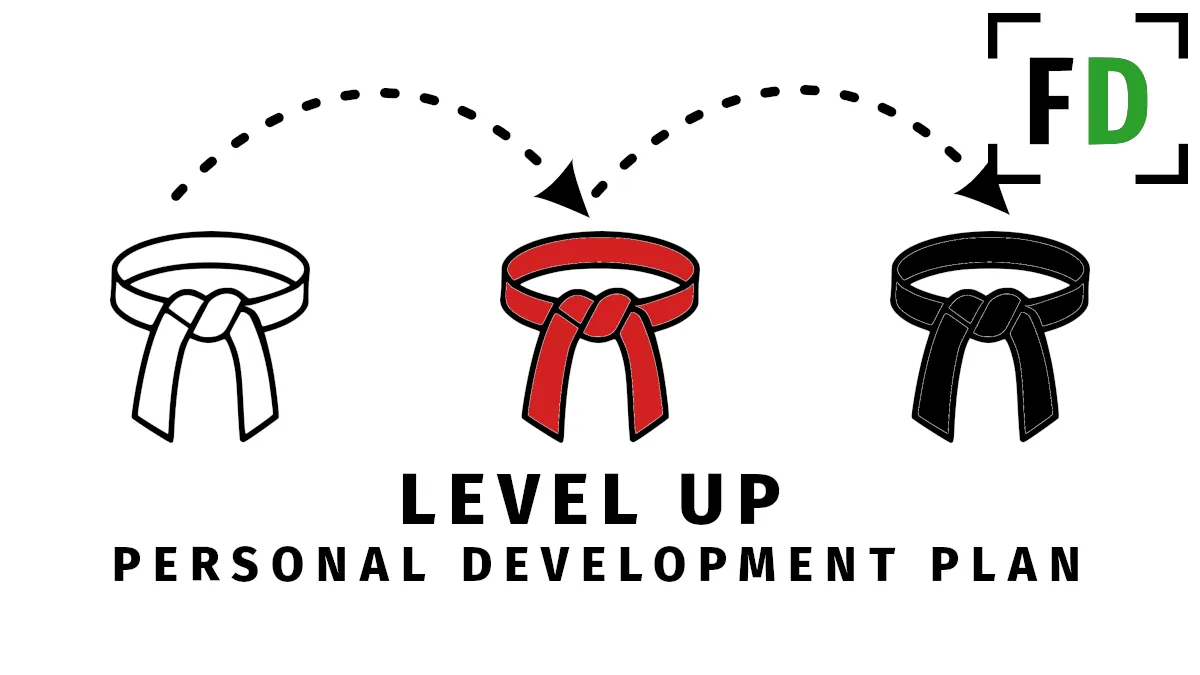Monk mode is quickly becoming a rite of passage for young men interested in bettering themselves, building businesses, or giving themselves a fair chance at being successful. But not every attempt at monk mode is a success. You can avoid making the same monk-mode mistakes by understanding the common downfalls and failures others have had in their monk modes.
Monk mode is a period of time set aside for personal growth or massive progress in a specific area of your life, such as setting up a new business. During monk mode, the “monk” isolates him or herself and gives up most parts of their life to have more time and energy to focus on themselves or a limited number of pre-determined areas.
It’s while deciding what to keep and what should be left that the first problems can arise. If you neglect too much of your life, there may be little left to return to. Although for short periods of monk mode, most problems are sufferable, if you intend to do monk mode for a few months or more, finding the right balance is essential. Here are some common monk-mode mistakes I have seen my clients make.
Avoid These Monk Mode Mistakes
1. Allowing Distractions to Creep Back into Your Life
When you first start monk mode and set goals to accomplish or a new routine to practice, you probably told everyone in your life that you would be less available than usual. You also likely packed away distractions like your video game console, junk food, and alcohol. Notifications that force you to pay attention to your devices also get switched off.
And for the first week, everything is peaceful, relaxing, and quiet. But slowly, distraction creeps back in.
It might start with a friend calling or coming over, then an appointment that you can’t miss forces you to turn your phone back on. Other distracting objects start to appear out of hiding too. Until your willpower is being tested everywhere, you turn, and you have no energy left over for your task at hand.
2. Neglecting Your Physical Health
You may have set a goal of preparing for an exam or finally setting up your affiliate business, but that doesn’t mean you can neglect your health. Working out is one of the best tips for monk mode. Why? Because working out will make you better at whatever it is you are tiring to achieve.
- It gives you more energy
- Improves focus
- Stops brain fog
- Improves confidence which makes you more effective
- Makes you smarter
Yes, the time you spend working out will be paid back many times over. But I get it; the gym is far away, which means getting ready, driving there, etc. It completely takes you out of your zone. So here are some easy solutions.
- Work out at the start or end of your day so it never interrupts your work.
- Go for a run, run for 15 minutes, turn around, and run back. Workout is done, and you’re back home
- Buy some used weights online. EBay or Craiglist always have tons of used weights for sale. There’s no excuse when you have a gym at home.
3. Not Allowing Any Slack
People get massively motivated when they first consider monk mode. They love the idea of holding back the world, focusing on one or two things, and achieving their goals efficiently, so much so that they fill their schedules to the brim.
For the first few days, they finish everything on their daily to-do list until something unexpected happens (a phone call you have to take or a trip to the hardware store because the boiler isn’t working.) Now they crash and burn. They try to catch up the next day, but the stress of being behind makes it harder to do anything. They fall further behind.
You must give yourself some slack in your schedule in those first few weeks. If you think you have six hours a day to dedicate to your monk mode, why not schedule just four for the first week and see how it goes? You can always increase it if you feel it’s too easy. But when something unexpected happens (and it will), you’ll be ready to handle it and still get everything done.
4. Detoxing Requires Energy
Everyone goes into monk mode for different reasons and with different goals. A common goal is to use monk mode to stop a bad habit or quit an addiction. You might decide to use monk mode as a chance to quit drinking, smoking, or trying nofap. Many people even try keto for the first time during their monk mode as the increased mental focus it gives compliments it perfectly.
Whatever you are giving up for monk mode, remember that detoxing is a difficult process, so you won’t be running on all engines until they come out the other side. That means you’ll see a noticeable drop in productivity; you might be in a bad mood, feeling down, or just feeling like you can’t concentrate.
So give yourself some easier tasks that first week, and don’t be so hard on yourself if you can’t get them all done; once you’re over the withdrawal, you’ll be back to your old self.
5. Not Eating Right
You can’t expect yourself to produce your best work if you fuel your body with Mcdonald’s and Redbull. Eating healthy food can indeed take more time, but if you do it right, you can make healthy meals for your whole week in just a couple of hours on the weekend.
Meal planning and doing a little meal prep once a week will make eating healthy easy. Here are some simple ways you can save time on your meals:
- Portion your food – When buying meat, veg, or carbs, portion it into one meal size and put it in ziplock bags (glassware is more environmentally friendly.) Then freeze it or store it. Then, when it’s time to make a meal, you can pull out single portions of meat and veg and dump it straight into the pan.
- Cook more than you need – Instead of cooking a single portion, make three portions and save two in glassware in the fridge. Warm one tomorrow, and you have an instant meal.
- Meal plan each weekend – By meal planning, you take all the guesswork out of your meals for the week. On the weekend (I like Sunday afternoons), Cook your meals for the next three days and portion them out. Then, prepare the following three days by portioning and chopping the raw ingredients so that cooking them will be easy midweek.
- Find simple recipes that are easy to meal prep.
6. Making Unrealistic Goals
You must set realistic expectations, especially in those first few weeks. For example, if you have never sat and written for a solid hour before, don’t set three hours of writing per day. And if you’re used to spending most of your time with friends socializing, it will be a real struggle to work all day alone.
You need to ease into it.
This list of monk-mode ideas can help.
Use the first two weeks to gradually increase the amount of work you do each day until you’re to a point you’re happy with. And stay below your maximum output.
Like in the gym, you don’t want to try a new one rep max PR every day. Most days, you want to leave a few reps in the tank so you can recover quickly and get back for another session.
Your monk-mode work is the same. If you over-exert yourself or even get too close to your limit, you’ll burn out after only a few days, and it could take a whole week to get over it. So instead, leave some reps in the tank. Some days I’ll stop writing after four hours even though I know I could do more because I know I can do four more tomorrow.
7. Becoming Too Isolated
During monk mode, you’re supposed to spend time alone working on your business or some other aspect, but becoming too isolated can create problems.
During the lockdowns of the pandemic, many people started to develop social anxiety and a fear of going out or meeting people, this way due to the extended time spent at home or alone. So even though you need to spend time working solo, don’t completely isolate yourself from your friends and family.
This is especially true for extroverts or omniverts, some times you simply need to be with other people.
You could set aside one afternoon each week to spend time with family or friends; this would give you some needed social interaction and a chance to reset after a week of intense work.
8. Becoming too Rigid With Your Schedule
Discipline is essential, especially when you first start doing monk mode, but you must recognize if you’re starting to burn out and make the necessary adjustments.
If you feel:
- Like you can’t focus
- Down or depressed
- Unmotivated
- Like you need a break
Then take one. Ideally, you should have some slack built into your schedule and some time set aside to do something fun, relaxing, or less taxing. That doesn’t mean you let yourself eat junk and play video games (though it could); instead, you might set some time to walk in the park, read something you enjoy, or listen to music.
If spending a little time each day on one of your hobbies or some other leisure activity keeps you working hard, that’s what you should do.
Don’t fall for the trap of extreme productivity and feel you need to use every waking minute to do something productive. It may work for a few days, but you will crash, and it’ll take much longer to get back on. Slow and steady wins the race.
A Balanced Approach Is What You Need
The best approach is a balanced one that you can continue indefinitely without burning out and consistently making good progress. This means that your workload goes up and down over the short term; some days, you can do more than others because of your mood and energy levels.
Taxi drivers who give themselves a daily target sometimes struggle because of this. They want to earn $500 per day, but some days, no one wants to take a taxi. So on those cold winter days when no one is out, those taxi drivers may work 16 hours to earn their $500, and on the busy days when everyone is looking for taxis, they finish work after only three hours when they hit their target early.
It might sound reasonable at first but think of it this way: On days when the fares are hard to find, they work longer, and on days when they’re easy to find, they work less. Obviously, they should be doing it the other way around.
The same is true for being productive; when you struggle to get anything done, why not go for a walk or hit the gym? When everything is flowing and work seems effortless, do some extra.






